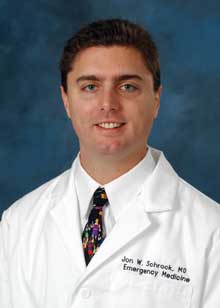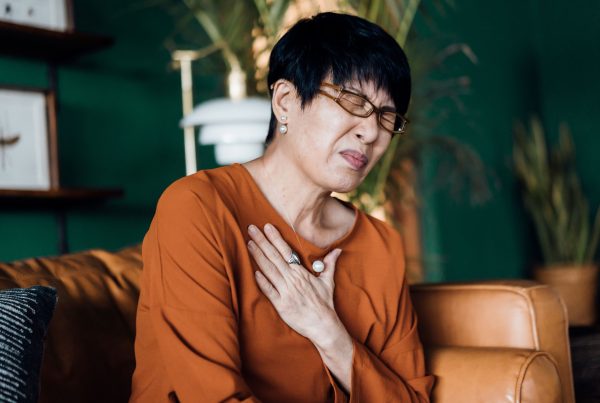If you or a loved one is having a stroke, quick treatment matters. Learn how to spot the signs of a stroke.
Did You Know?
May is National Stroke Awareness Month.
A stroke is when a part of the brain dies either from being without enough blood flow for too long (an ischemic stroke) or from bleeding into or around the brain (a hemorrhagic stroke). In the United States, about 750,000 strokes happen each year, about 80% of which are ischemic strokes. Stroke is a leading cause of disability and death.
Who’s at risk?
You are more likely to have a stroke if you’re older, have had a stroke or heart attack before, have a parent or sibling who’s had a stroke, or if you’re Black. Those are the risks you can’t change. But there’s a lot you can do to help lower your risk for stroke:
- Quit or don’t start smoking
- Stay physically active
- Maintain a healthy weight and diet
- Get plenty of sleep
- Know your numbers (cholesterol, glucose, blood pressure, etc.)
Recognizing stroke
Knowing if you or a loved one is having a stroke is important, so you can get help quickly. Stroke has some tell-tale signs — sudden loss of balance, vision loss, face drooping or numbness on one side, weakness or numbness in one arm or leg, slurred speech or inability to speak. Healthcare providers who treat strokes say: “time is brain.” Getting to a stroke-certified emergency department may be the difference between life and permanent injury or even death.
BE FAST
Use the letters in BE FAST to remember balance, eyes, face, arms (weakness), speech—and, most importantly, time.
- Balance – loss of balance or falling
- Eyes – painless loss of vision or eyes deviating towards one side or the other
- Face – facial droop. Is one’s smile uneven or lopsided? Is the crease between the nose and lips on one side flattened compared to the other?
- Arm – arm weakness, numbness and/or clumsiness. Does raising both arms with palms up and eyes closed for 10 seconds cause one arm to rotate inwards and/or drift downward compared to the other?
- Speech – sudden slurring or inability to make sense when speaking and/or understand others.
- Time – time to call 911
Expert care is here. Remember, call 911 immediately if you or a loved one experiences any stroke warning signs to get to the closest stroke center.
All MetroHealth Emergency Departments are Stroke Certified
MetroHealth has a long history of providing the best stroke care possible. In fact, it is the only system in the area to have all its Emergency Departments stroke-certified.
- Brecksville**
- MetroHealth Main Campus (Comprehensive Stroke Center)*
- Cleveland Heights**
- Parma**
To learn more, visit metrohealth.org/emergency-room.
*Certified by the Joint Commission as a Comprehensive Stroke Center, the highest certification possible, and handles the most complex cases.
**Certified as Acute Stroke Ready Hospitals by the Healthcare Facilities Accreditation Program/Accreditation Commission for Healthcare.












